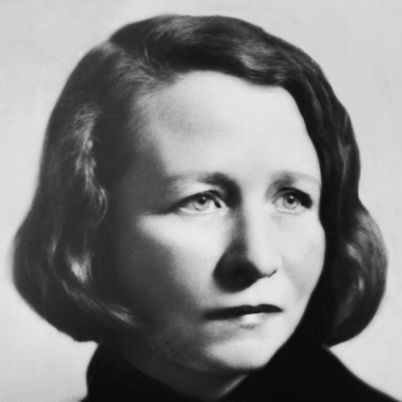You are viewing the article Edna St. Vincent Millay at Lassho.edu.vn you can quickly access the necessary information in the table of contents of the article below.

(1892-1950)
Synopsis
Edna St. Vincent Millay was one of the most respected American poets of the 20th century. Millay was known for her riveting readings and feminist views. She penned Renascence, one of her most well known poems, and the book The Ballad of the Harp Weaver, for which she won a Pulitzer Prize in 1923. In her poem First Fig, she coined the popular phrase, “My candle burns at both ends.” Millay died in 1950 on her farm in Austerlitz, New York.
Early Life
Edna St. Vincent Millay was an American poet and playwright born on February 22, 1892, in Rockland, Maine. Known to her family as “Vincent,” she was named after St. Vincent Hospital in New York City, where her uncle had received care. Her father, Henry Tolman Millay, had a job in the insurance business and in education while her mother, Cora Buzzell Millay, worked as a nurse. At the age of 8, her parents divorced, and her mother raised Millay and her younger sisters.
Millay’s family encouraged the children to value culture and literature. As such, Millay studied piano and theater, and spoke six languages. She had originally wished to pursue a concert pianist career, but her music instructor discouraged her, pointing out her small hands. She pursued writing instead.
Millay graduated from Camden High School in 1909 and lived in Camden, Maine, until age 20. The following year, she enrolled at Vassar College, and graduated in 1917 with a Bachelor of Arts degree.
Career Success
At the age of 20, E. Vincent Millay penned “Renascence,” one of her most well-known poems. She read this poem at the Whitehall Inn in Camden, and the public embraced her recitation. Millay read her poems with passion and often sprinkled in her forward-thinking opinions regarding politics and women’s issues. Sometimes this caused controversy, such as when she wrote a poem supporting the Allied war effort during World War II. Merle Rubin noted, “She seems to have caught more flak from the literary critics for supporting democracy than Ezra Pound did for championing fascism.”
Influenced by fellow poet Robert Frost, Millay wrote sonnets with great skill and thoughtfulness. Her popularity grew, and she went on to win the Pulitzer Prize in 1923 for her fourth book, The Ballad of the Harp Weaver. In her poem First Fig, she coined the popular phrase, “My candle burns at both ends.”
Millay also found success as a playwright, penning the popular opera The King’s Henchman in 1927. Her accomplishments positioned her as one of America’s great poets of the 20th century.
Personal Life
Millay attracted many suitors, including poets Floyd Dell and Arthur Davison Ficke, and Vanity Fair editors John Peale Bishop and Edmund Wilson. Wilson proposed marriage, but Millay declined in fear of wasting her career in a life of domesticity.
In 1923, Millay married Eugen Boissevain, a Dutch businessman who supported her feminist views. Unusual at the time, her husband gave up his career to manage Millay’s. His devotion also included his 1938 purchase for her of Ragged Island, located off the coast of Maine.
The couple later resided in Austerlitz, New York, on the 700-acre farm and modern-day national historic landmark called Steepletop. Millay died on October 19, 1950, in her Austerlitz home, where she is buried on the grounds.
QUICK FACTS
- Name: Edna St. Vincent Millay
- Birth Year: 1892
- Birth date: February 22, 1892
- Birth State: Maine
- Birth City: Rockland
- Birth Country: United States
- Gender: Female
- Best Known For: Edna St. Vincent Millay is best known as one of the most respected American poets of the 20th century. She coined the popular phrase, “My candle burns at both ends.”
- Industries
- Fiction and Poetry
- Astrological Sign: Pisces
- Schools
- Vassar College
- Camden High School
- Interesting Facts
- In a poem, Edna St. Vincent Millay coined the phrase, “My candle burns at both ends.”
- Occupations
- Playwright
- Poet
- Death Year: 1950
- Death date: October 19, 1950
- Death State: New York
- Death City: Austerlitz
- Death Country: United States
Fact Check
We strive for accuracy and fairness.If you see something that doesn’t look right,contact us!
CITATION INFORMATION
- Article Title: Edna St. Vincent Millay Biography
- Author: Biography.com Editors
- Website Name: The Biography.com website
- Url: https://www.biography.com/authors-writers/edna-st-vincent-millay
- Access Date:
- Publisher: A&E; Television Networks
- Last Updated: July 14, 2020
- Original Published Date: April 2, 2014
QUOTES
- My candle burns at both ends.
- [Edna St. Vincent Millay] seems to have caught more flak from the literary critics for supporting democracy than Ezra Pound did for championing fascism.
Thank you for reading this post Edna St. Vincent Millay at Lassho.edu.vn You can comment, see more related articles below and hope to help you with interesting information.
Related Search: